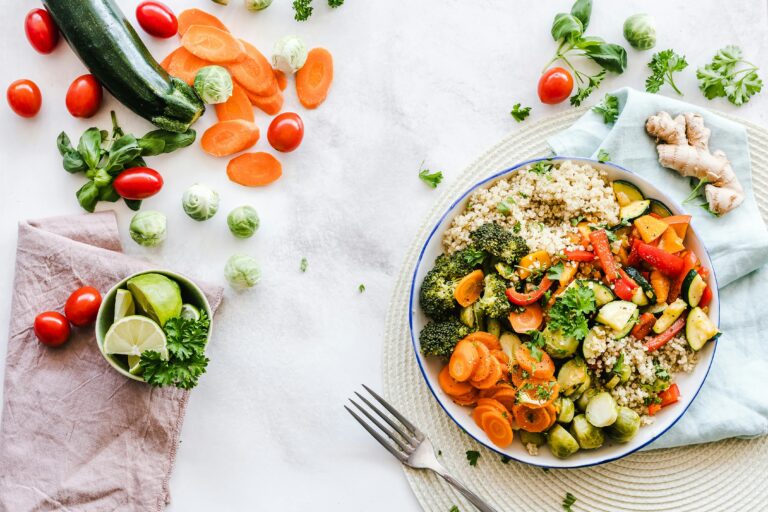
Nutrition and Cancer
Nutrition plays a vital role in improving the quality of life for cancer patients. While factors like genetics and environment can influence cancer risk, diet is something we can control. Research shows that less than 30% of cancer risk comes from uncontrollable factors, meaning the rest can be managed through lifestyle choices, including a healthy diet. For cancer patients, proper nutrition is not just about prevention—it’s about supporting the body during treatment, boosting the immune system, and aiding recovery.
Why Nutrition Matters During Cancer Treatment
Cancer treatments like chemotherapy and radiation often cause side effects such as nausea, vomiting, loss of appetite, and fatigue. These can make eating difficult, but proper nutrition can help manage these challenges and improve overall well-being. Here’s how:
- Small, Frequent Meals: Eating smaller meals throughout the day can help patients who struggle with hunger or nausea.
- Protein-Rich Foods: Foods like eggs, lentils, lean meat, and dairy are essential for repairing tissues, maintaining muscle strength, and supporting the immune system.
- Calorie-Dense Foods: Cancer treatments can increase the body’s energy needs. Nutrient-dense foods help patients maintain strength, especially if they’re losing weight.
Key Nutrients Required During Treatment
Nutritional deficiencies are common during cancer treatment, as the body may not absorb nutrients properly making it crucial to focus on specific vitamins and minerals that support recovery, immunity, and overall health. Here are some nutrients that are particularly important for patients undergoing cancer treatment:
- Vitamin D:
- It supports immune function, reduces inflammation, and helps maintain bone health, which can be compromised during treatment.
- Sources: Sunlight, fortified dairy products, fatty fish (e.g., salmon), and supplements (if recommended by a healthcare provider).
- Vitamin C:
- It boosts immunity, promotes wound healing, and acts as an antioxidant to protect cells from damage caused by free radicals.
- Sources: Citrus fruits (e.g., oranges, lemons), strawberries, bell peppers, and broccoli.
- Iron:
- it prevents anemia, a common side effect of cancer treatments like chemotherapy, by supporting red blood cell production.
- Sources: Lean meats, beans, lentils, spinach, and iron-fortified cereals.
- Zinc:
- It supports immune function, wound healing, and DNA repair, all critical during cancer treatment.
- Sources: Shellfish, nuts, seeds, whole grains, and legumes.
- Magnesium:
- Helps reduce fatigue, supports muscle and nerve function, and plays a role in energy production.
- Sources: Leafy greens, nuts, seeds, whole grains, and dark chocolate.
Hydration is Important
Staying hydrated is vital during cancer treatment. Chemotherapy and other therapies can cause dehydration, so drinking enough water, fresh juices, or soups is important. Soft foods like yogurt, mashed potatoes, or smoothies can also provide nourishment without discomfort for patients with mouth sores or difficulty swallowing.
The Role of Environment and Emotional Well-Being
Nutrition isn’t just about food—it’s also about the environment and emotional support. Sharing meals with family or friends can improve mood and make eating more enjoyable. Additionally, understanding genetic factors can help tailor a diet that works best for the patient’s unique needs.
How Nutrition Supports Emotional Health
Eating well doesn’t just benefit the body—it also improves emotional well-being. A balanced diet can reduce stress, improve sleep, and give patients a sense of control over their health. For example, a diet rich in whole grains, nuts, and seeds can promote better sleep, which is essential for recovery.
Proper nutrition is a powerful way to enhance the quality of life for cancer patients. It helps manage treatment side effects, boosts the immune system, provides strength and energy, and supports emotional well-being. Patients can feel stronger and more resilient by focusing on a balanced diet with the right mix of protein, calories, fruits, vegetables, and other nutrients.
Consulting a nutritionist or dietitian can help create a personalized plan that meets the patient’s specific needs, ensuring they have the best possible support during their cancer journey. Eating well isn’t just about survival—it’s about thriving, even in the face of adversity.






![<p>The image showcases a vibrant assortment of fresh fruits, vegetables, and spices known for their immune-boosting properties. Items like citrus fruits, turmeric, honey, ginger, leafy greens, and nuts are neatly arranged on a light gray surface. At the center bottom, a notebook with the words “IMMUNITY BOOSTERS” highlights the theme of maintaining health and strengthening […]</p>
<p>The image showcases a vibrant assortment of fresh fruits, vegetables, and spices known for their immune-boosting properties. Items like citrus fruits, turmeric, honey, ginger, leafy greens, and nuts are neatly arranged on a light gray surface. At the center bottom, a notebook with the words “IMMUNITY BOOSTERS” highlights the theme of maintaining health and strengthening […]</p>](https://cms.carercircle.com/wp-content/uploads/2025/10/top-view-immunity-boosting-food-healthy-lifestyle-1-768x513.jpg)




